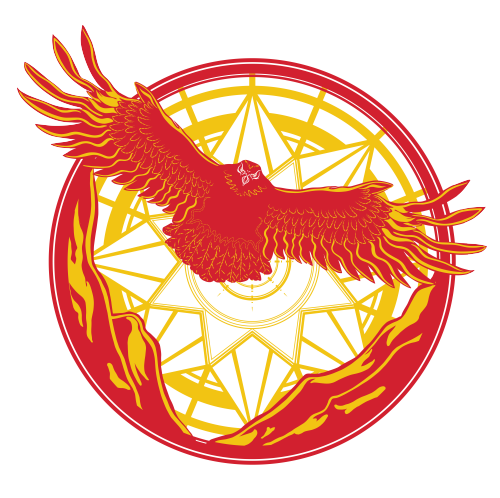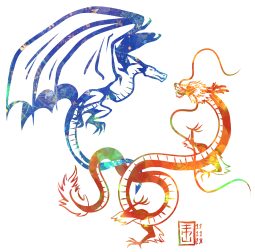What would it be like to study languages at Signum? If only we could get a glimpse into the minds of the Germanic Philology Department luminaries! With this in mind, I asked the Germanic Philology professors four very important questions:
What’s your coolest story about being a polyglot?
Paul Peterson, PhD., Deputy Chair of the Language and Literature Department: Once upon a time when I was studying Icelandic in Iceland over the summer, all the students in the language program were on a field trip aboard a bus in the countryside. I found the Scandinavian pack of Swedes, Norwegians, and Danes, and got to participate in their conversation based on mutual intelligibility of all three. The rule was if anyone had to ask “Vad?” (“What?”) twice, we would switch to English.
Carl Anderson, PhD. I first went to Iceland when I was 17. I had wanted to learn a Scandinavian language and had found an Icelandic graduate student at the local university who, though knowing nothing about language teaching, was happy to tutor me in Icelandic in exchange for my lawn-mowing money. After some months or maybe a year of learning Icelandic like that, I traveled to Iceland after graduating from high school and before college, and put my (limited) abilities to the test. The main challenge was that many people were so astonished to hear someone with a foreign accent trying to speak Icelandic that they would ignore whatever question I had posed and ask where I was from. But the best story is of the lady who was selling ice cream from a kiosk on the street, and she wouldn’t sell me an ice cream until she had finished her impromptu mini-lesson for me: I had to name all the flavors in her cart correctly, and get the grammar perfect in my spoken request. Now that is motivation for learning.
Isaac Schendel, PhD. At a work party with my wife I was switching back-and-forth between German and Norwegian as an American. I can still see the Norwegians’ big eyes.
Have you ever done any Con Langing? (juicy details, please)
Carl: Oh, yes. I mean, I’m a very nerdy Tolkien fan from back when I was a little kid, and it’s hard for me to just be a consumer of things I really like: I want to do those things (however badly) too. So I also wanted to invent fantasy worlds and languages for them …. I still do! When I was younger, I wanted to just use cool real-world ancient languages for my fantasy worlds, but I didn’t have access to the resources to do them “correctly”, so I guess I was sort of trying to deduce the principles of comparative philology to fill in the gaps. Like, I didn’t have access to the information I needed to make all the placenames in Old Norse, but I knew Modern German was similar, and I could see some of the words were related, so I would try to make German words in my dictionary look more like how I imagined Old Norse words ought to be. Later on, I would get a bit more creative, though I still tend to enjoy mutating real-world languages in various ways rather than completely inventing something from scratch. I think I like the “resonances” that attach to real-world languages, and then mashing them up in various ways. So, amongst other endeavors …. there was a period where I was trying to pass Porto-Celtic through the sound changes that had led from Latin to Spanish in order to try to create a “modern Ibero-Celtic” language. Then, during the pandemic, my daughter and I played a lot of “one-with-one” D&D in a world largely of her imagining, though I took it upon myself to invest it with conlangs. So, we had dwarves who spoke a language that plundered its vocabulary and (a highly simplified) grammar from various Mayan languages; I wanted our dwarves to have pictographic glyphs for their writing, but that was a real bear to design! And then our elves spoke a language with vocabulary plucked from Proto-Germanic, but altered to fit (more or less) the phonology of modern Japanese. There were little tweaks to vocabulary and grammar to give different groups more or less archaic or innovative dialects. But all of my conlanging, like my real language learning, tends to be “just in time” and “what’s needed for the purposes of the moment”. So I never really create complete languages, but mostly create what I need for personal names and placenames, or short phrases to add flavor to the story.
Isaac: This is kinda a N/A for me. After my sophomore year in undergraduate I got my hands on a guide to ConLanging but I never got past the morphology part. That was probably because I tried to base the entire language off of snorts.
Nelson Goering, PhD. For conlangs, I like seeing what other people do. Aside from Tolkien, I’ve spent a bit of time with Na’vi (far and away the best thing to come out of the Avatar movie), as well as a few other things I’ve come across online. I’m a particular fan of this one: Conlang Showcase – Nekāchti It’s close enough to doing what I’d want a conlang of my own to do that I haven’t worked too hard on creating anything myself. Though if I ever get bored, I might try sketching out my idea for a draconic language. My idea is that since dragons don’t have real lips, they shouldn’t have labial sounds, but might compensate with a particularly rich range of gutturals.
What work of non-English literature makes learning That Language really, really worth it for the beauty and richness?
Paul: The Poetic Edda, or Old Norse poetry in general, is a world treasure that can only be fully appreciated in the original Old Norse. Of course also Beowulf and Old English poetry is nothing to scoff at either.
Carl: I think that here I need to go back to my answers for the first question: I think it’s that feeling that people from another world (or, at least, another culture) are speaking directly to you, without you needing an intermediary. I think it’s that feeling that one is in communication with, that one is engaging with, someone who is not like one’s own self that is the attraction. It is perhaps a cliche that we learn about ourselves by learning about an Other, but it is perhaps still true. Having access to the language of that Other is a way to make that process more immediate.
Isaac: For Middle High German, probably the Minnesang genre. It’s really rewarding to read a poem and then to think about each individual word and their cultural connotations.
Nelson: For literature, or all depends on your taste, but for me the most rewarding work in its original language is Beowulf. But maybe that counts as too English for this question? In Norse, the Poetic Edda isn’t uniformly excellent, but the best poems are amazing, and no translation really gets them fully: Völuspá, Atlakviða, and Hamðismál are particular standouts in my opinion. For (literary) Chinese, I’ve love working my way through various Tang poems (Wang Wei hooked me first, though the top billers Li Bai and Du Fu are what I’ve been tackling most recently), though I still can’t read these as easily as I hope I’ll eventually be able to.
But I have to say, literature is secondary or even tertiary point for me. One of my favourite languages is Gothic, which has nothing unique at all in terms of literature – but it’s just so delightful as a language, and so fascinating from a historical-linguistic perspective, that I thoroughly adore it. Similarly, as much as I love Beowulf for it’s literary qualities, I’m nearly as interested in the early (c. 700 on) glossaries that are nothing more than word lists. There’s almost a poetry to them, if you look at them as glimpses of English from 1300 years ago. I’ve also just finished a chapter on the Early Middle English Ormulum, which is not great literature, but is invaluable linguistically. Same with runic inscriptions in Norse, or Middle Norwegian charters, etc, etc. If your first interest is the language itself, almost any text becomes beautiful and fascinating in the original, in ways that are truly untranslatable. You can get a reasonable facsimile of most poetry in translation, but when the point is the language itself, you have to go to the original versions or you’ve got nothing at all. If you like this sort of thing, you’ll be happy to put in many hours with no promise of a literary reward at any point.
How does one say “dragon” in any of the languages that you have at your fingertips? How about “Go, Eagles”?
Paul: I like the primary Norse term for “dragon” best: ormr. It’s a cognate of English worm, and in several ways the term ormr reveals the ambiguous nature of dragons (Are they serpentine? Can they fly? Do they have legs? Do they breathe fire?). I’ve yet to meet one, but I’m still not totally sure what to expect if I ever do.
“Go, Eagles” in Old Norse would be: Gǫngumsk, ernir! (‘Let’s go, eagles!’). I love this set up because it reveals that Old Norse has suffixed mediopassive forms, a 1st person plural imperative (i.e. command) form, and ernir displays one of the three vowels possible for the root of ǫrn (nominative singular ‘eagle’; cf. genitive singular arnar ‘of an eagle, eagle’s’).
Carl: Well, most of the Germanic languages have an “indigenous” word for dragon that is cognate with English “worm”; thus Tolkien’s use of that word to label dragons, as well as modern uses of the cognate Old English word “wyrm” as an archaizing and slightly cooler-looking term that avoids seeming like something small and oozy you found in your garden after the rain. The Old Norse cognate is “ormr”, though Germanic also borrowed the Latin word “draco”, which turns up as “draca” in Old English and “dreki” in Old Norse. Then — I had to check my notes! — but in the Proto-Germanic-meets-Japanese conlang invented for my daughter’s gameworld, we had “dorakon” (based on Ancient Greek δράκων/“drákōn”, but almost identical to the modern Japanese borrowing of English “dragon”, ドラゴン/“doragon”), but also (for more formal or ritual contexts) “agawi”, based on a very hypothetical Proto-Germanic form *ag(w)iz, from the same Indo-European root that produced Sanskit अहि/“Áhi” (meaning “snake”, but also used as the name of the monstrous dragon slain by Indra). I mean, everyone needs multiple terms for dragons! I admit I’m not really sure how to put “Go, Eagles!” into Old Norse though I think (!?) that Modern Icelandic uses the adverb “áfram” (“onward, forward”) in this kind of expression (rather than an imperative form of the “go” verb, as in English) … so I’d suggest (somewhat hesitantly!) with “Áfram ernir!” for “Onward, Eagles!” Maybe Paul did that better!
Isaac: Again, Middle High German: Trache! Gehet, ir adalarn! (or maybe, because they’re eagles and therefore given to flying: vlieget, ir adelarn!)
Nelson: Old English had a few words for dragon: draca and wyrm, and also more poetic terms like ūht-floga (predawn flyer). The main Chinese word for dragon is lóng.

